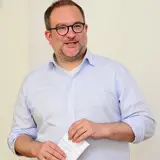Courses Winter Term 2021/2022
Ancient Philosophy from the Pre-Socratics to Augustine
Lecturer:
Prof. Dr. Dr. Holger Zaborowski
Content:
An Introduction into ancient philosophy from the Pre-Socratics to Augustine.
Literature:
Christoph Horn, Philosophie der Antike. Von den Vorsokratikern bis Augustinus, München 2013; Horst Seidl, Einführung in die antike Philosophie. Hauptprobleme und Lösungen, dargelegt anhand der Quellentexte, Freiburg / München 2012; Carl-Friedrich Geyer, Philosophie der Antike. Eine Einführung, 4. neubearb. Auflage, Darmstadt 1996; Weitere Literatur (insb. Primärliteratur) wird im Laufe des Semesters zur Verfügung gestellt.
Time:
Tuesdays 2:00-4:00 pm
The Human Being and Nature. Philosophical Approaches
Works, Edition, Critique. Martin Heidegger, Eugen Fink and their Literary Estates
Lecturer:
Prof. Dr. Dr. Holger Zaborowski
Content:
The seminar focuses on the works and literary estates of the philosophers Martin Heidegger and Eugen Fink. It introduces the philosophical significance of these literary estates, the self-understanding of these authors (with a view to Friedrich Nietzsche) and key principles of estate editions (by the example of the Martin Heidegger-Briefausgabe). Excursions to Weimar und Marbach (German Literature Archive) are also planned.
Literature:
Will be provided in the course.
Time:
please contact: holger.zaborowski@uni-erfut.de
The America We didn't Know: Encounters between Germans and "Heartland" Americans as Social History, 1914-48
Lecuters:
Prof. Dr. Dr. Holger Zaborowski and Dr. Michael Luick-Thrams
Content:
In 1914, America was not yet a world power—but that soon would change. Participants will become acquainted with the reactions of Americans to the new role of their nation in the world and its social problems in a rapidly changing country. To understand Americans’ reactions to their nation’s new role in the world and their place in their swiftly changing country, participants will meet a variety of individuals, both who witnessed history as it was being made and whose lives were forever altered by it. In small groups, the participants will examine how [also German-]Americans lived, worked and played. They will analyze how Americans carried out armed wars abroad [2 World Wars] and died in "ethnic wars" at home. As sources, we will look at diaries, letters, articles, photos, works of art ... and thus try to fathom the "American psyche". Here, comparisons and parallels to German social history in Europe will be drawn repeatedly. The results will be presented in the form of a small project.
Literature:
Literature will be provided in the course.
Time:
Friday, October 15th, 8 am to 9 pm 1
Saturday, October 16th, 9 am to 5:30 pm
Wednesday, November 17th, 2 pm to 4 pm
Friday, Novemeber 19th, 4 pm to 8:30 pm
Saturday, November 20th, 9 am to 5:30 pm

